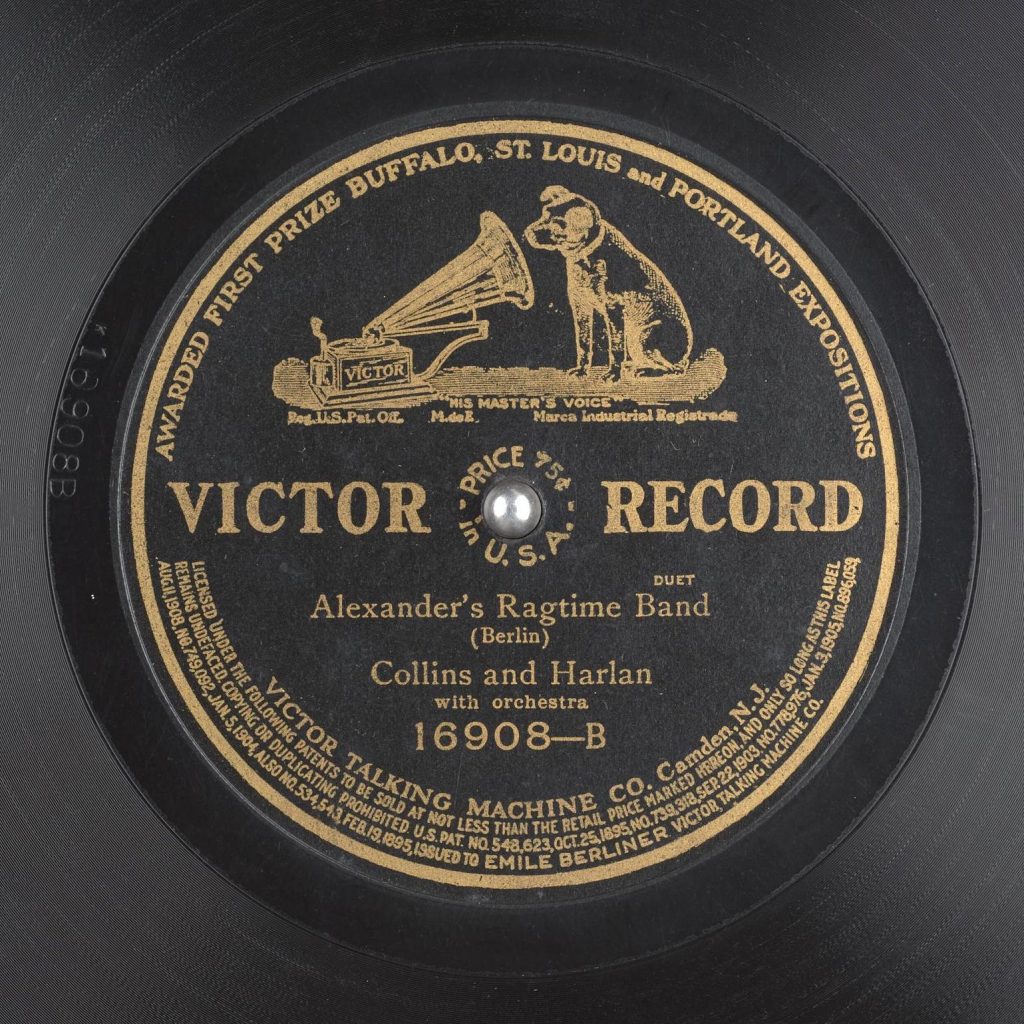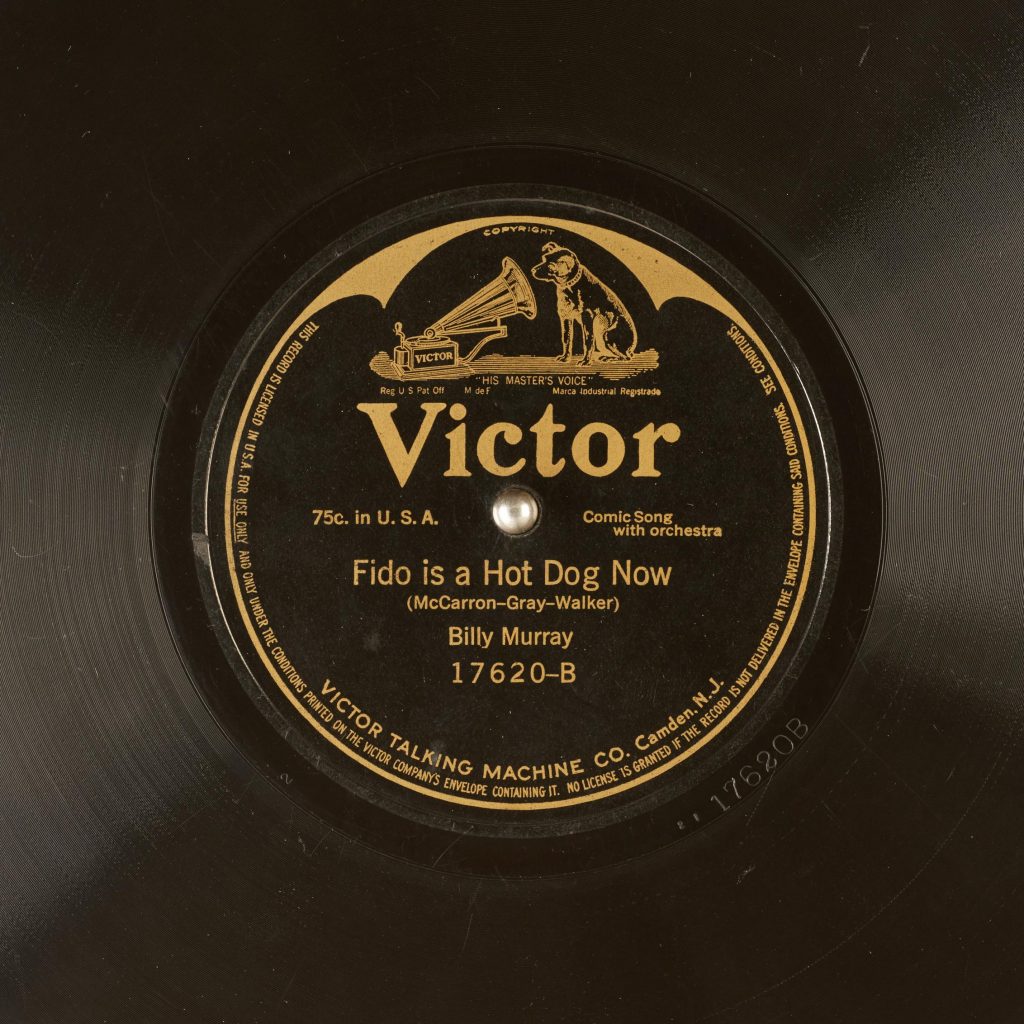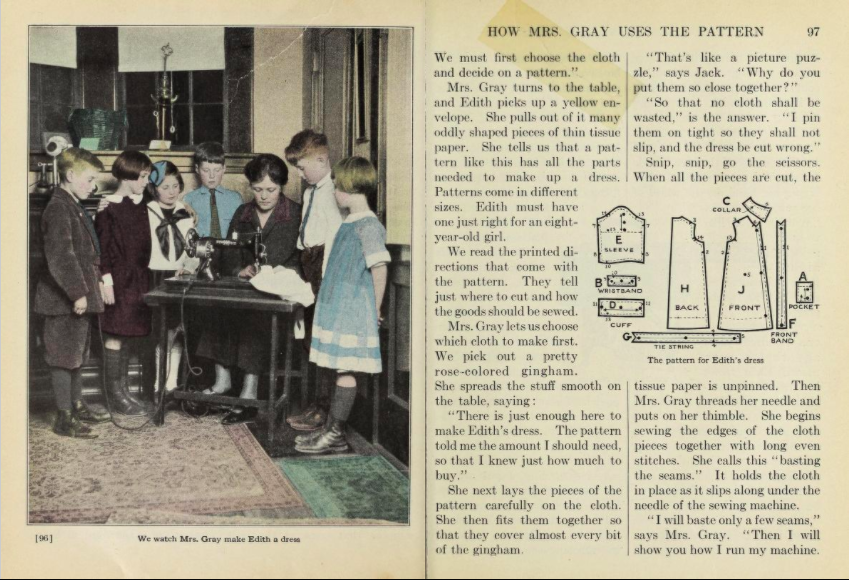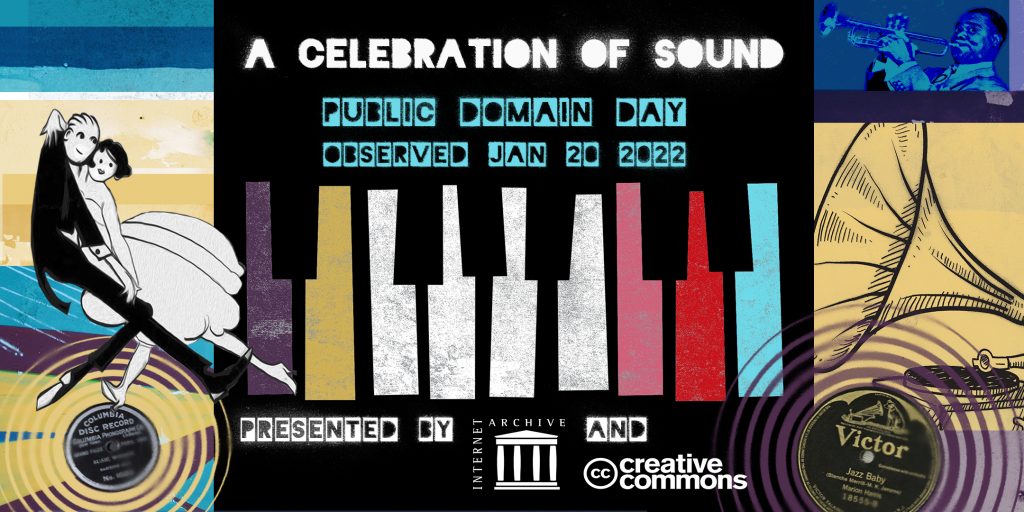Every January we feature works that are entering the public domain. And this year the big story is in recorded music.
Recorded Music from 1922 and earlier
Approximately 400,000 sound recordings made before 1923 will join the public domain in the U.S. for the first time due to the Music Modernization Act (read more at copyright.gov). You can peruse about 38,000 of them in our collection of digitized 78rpm records.
By 1922 we were solidly in the Jazz Age – F. Scott Fitzgerald’s Tales of the Jazz Age was published in 1922, and the term was already in popular usage. Jazz migrated from Black American communities in New Orleans into the rest of the United States, having evolved from its roots in rag time, blues and Creole music. In fact, 1922 was the year Louis Armstrong left New Orleans to join King Oliver’s Creole Jazz Band in Chicago.

Peruse the collection to hear early jazz classics like Don’t Care Blues by Mamie Smith and her Jazz Hounds, Ory’s Creole Trombone by Kid Ory’s Sunshine Orchestra, and Jazzin’ Babies Blues by Ethel Waters.
Early recordings by Bert Williams (the first Black American on Broadway and the first Black man to star in a film), Fanny Brice (the real-life ‘Funny Girl’), Enrico Caruso (the legendary Italian operatic tenor), and so many others give life and flavor to our imaginings of the early 20th century.
Here are some of the top songs from 1922, to give you a taste:
- April Showers by Al Jolson
- Hot Lips by Paul Whiteman
- ‘Way Down Yonder in New Orleans by Margaret Young
- The World Is Waiting for the Sunrise by Isham Jones Orchestra
- Toot, Toot, Tootsie! (Goo’bye) by Al Jolson
- Mister Gallagher and Mister Shean
- Ory’s Creole Trombone by Kid Ory’s Sunshine Orchestra
- My Buddy by Henry Burr
- Oh! Is She Dumb by Eddie Cantor
- Three O’Clock in the Morning by Paul Whiteman
- On The Alamo by Isham Jones
But personally when I “flip through” these records I’m always drawn to the novelty songs.
There’s a whole genre of sound imitations, like Violin Mimicry where a violin is used to imitate people talking, Jingles from the Marsh Birds with a man imitating birds imitating popular songs (just as confusing as it sounds), and A Cat-astrophe with people imitating rather catastrophic cats to music.
You can also skip the jokes and go straight to laughing just for the sake of it with these gems: Laughs You Have Met, Gennett Laughing Record, and The Okeh Laughing Record, or choose to have a little music with laughing choruses like Ticklish Reuben, She Gives Them All the Ha-Ha-Ha, Stop Your Tickling, Jock! or And Then I Laughed.
And perhaps my favorite of the bunch is Fido is a Hot Dog Now which seems to be about a dog who is definitely going to hell.

Other Media from 1926
As usual, we are also welcoming some new books, movies, journals, and sheet music – this time from 1926! (Read about 1925, 1924, and 1923 in previous posts.)
Some popular first edition books from 1926:
- The Land of Mist by Sir Arthur Conan Doyle
- My Mortal Enemy by Willa Cather
- Soldiers’ Pay by William Faulkner
- The Romantic Comedians by Ellen Glasgow
- The World of William Clissold by H.G. Wells
- Tales of the Jazz Age by F. Scott Fitzgerald

Other interesting books from 1926 that you might want to explore include Show Boat by Edna Ferber which was made into the musical Show Boat in 1927 with music by Jerome Kern, The Clothes We Wear by Frank and Frances Carpenter which is a child friendly exploration of how clothes are made all the way from the field through weaving and into sewing, or The Art of Kissing by Clement Wood which is pretty self explanatory.
We invite you to explore some of the other items dated 1926 in our collections to find your own fun items that may now be in the public domain.
Virtual Party for the Public Domain
Please join us for a virtual party on January 20, 2022 at 1pm Pacific/4pm Eastern time with a keynote from Senator Ron Wyden, champion of the Music Modernization Act and a bunch of musical acts, dancers, historians, librarians, academics, activists and other leaders from the Open world! (And yes, we DO have a book from 1926 about how to throw the world’s best party.)
REGISTER FOR THE VIRTUAL EVENT HERE!

I have some of these records a album of AL Jolson in and an album by Bing Crosby and album from Uncle Remus
Alexis, you say “… the other items dated 1926 in our collections to find your own fun items that may now be in the public domain.” Why do you say it *may* be in the public domain? I thought 1926 was an absolute cutoff.
I’ve just tried ‘Casey at the dentist’ but my experience was marred by clicks and scratches in stereo, louder than the voice. Whoever transcribed it might have at least reduced the noise to mono. Or better still removed all sounds that were only on one channel.
hi
great post
thanks